During First Minister’s Questions on 13th March, Scottish Labour leader Anas Sarwar urged First Minister John Swinney to reconsider the Scottish Government’s approach to national security, arguing that “global events are reshaping the world before our eyes” and that “all political parties and both of Scotland’s Governments must adjust to the new reality and rethink previous red lines.”
Sarwar welcomed the UK Labour Government’s recent decision to increase defence spending, stating that this would “not only help to keep us safe, but will deliver more investment and jobs in Scotland.”
He pointed to Scotland’s strengths in “shipbuilding, engineering and manufacturing” as areas that could benefit significantly but warned that Scotland’s “outdated skills system holds Scotland back.”
He pressed Swinney on whether the Scottish Government would act to “build a skills system that is fit for the future” so that Scotland could fully capitalise on the investment flowing into the defence sector.
Swinney Insists Government is Addressing Skills Gaps
Swinney responded that he “absolutely” agreed on the need for a strong skills system and insisted that “the Government is determined to ensure” that the necessary training structures were in place. He highlighted the Scottish Government’s ongoing work with employers, saying:
“We work closely with employers to ensure that our skills approach—particularly regarding the reforms to apprenticeships that we have undertaken in recent years to create foundation and graduate apprenticeships and to expand the range of possibilities that are in place for young people in the education system—will ensure that we have the skills that are necessary for the 21st century.”
However, Sarwar pushed back, arguing that “the facts do not match his stated position” and that “much of the skilled labour in Scotland’s defence industry is coming from abroad on temporary contracts because we are not equipping Scots with the skills that they need.”
Labour Pushes for Nuclear Deterrent Support
Sarwar then challenged Swinney on the SNP’s opposition to the UK’s nuclear deterrent, citing comments from former SNP Westminster leader Ian Blackford, who had recently urged the party to reconsider its position. Sarwar quoted Blackford’s statement that “when the facts change, careful consideration of our response is appropriate.”
He went on to accuse the SNP of ideological inflexibility at a time of growing global instability, stating:
“At a time when there is a war on our continent and the world is growing increasingly dangerous, the SNP’s position is that we should give up our nuclear deterrent now while countries such as Russia hold on to theirs.”
However, Swinney was unequivocal in rejecting any suggestion that the SNP should support nuclear weapons, reiterating:
“Mr Sarwar knows my position on the nuclear deterrent—I do not believe that nuclear weapons should form part of the defence approach that we take forward.”
Instead, he argued that “what we need in order to ensure that we can repel Russian aggression is effective conventional forces.”
Swinney, however, maintained his opposition, stating, “It is important that we have the defence forces and requirements that are necessary for our times. I simply point out to Mr Sarwar that nuclear weapons are held by a number of countries just now, but that has not stopped the conflict that is taking place in Ukraine at this very moment.”
This argument, however, appears flawed in context. The fact that Russia, a nuclear-armed state, invaded Ukraine—a non-nuclear state—does not necessarily disprove the deterrent effect of nuclear weapons. Rather, it highlights the vulnerability of non-nuclear states. While Swinney rightly emphasises the need for effective conventional forces, his argument does not directly address the role of nuclear deterrence in preventing existential threats to the UK. NATO’s nuclear capabilities may have played a role in deterring Russia from escalating the conflict beyond Ukraine’s borders.
He then turned the focus to past UK government commitments, noting:
“The previous Government promised in 2014 to increase the number of Scotland-based personnel in the regular armed forces to 12,500 by 2020. That was not met, so I am not going to stand here and take lectures from Mr Sarwar about the actions of the United Kingdom Government.”
Scottish Government Engaging with Defence Industry
Swinney also pushed back against claims that the Scottish Government was not engaging with the defence sector, pointing to recent meetings between ministers and industry leaders. He noted that the Deputy First Minister had met with the delivery board on the national strategy for economic transformation, which included senior defence figures such as Sir Simon Lister of BAE Systems.
He also highlighted efforts to enhance cyber resilience, stating that the Cabinet Secretary for Justice and Home Affairs was preparing proposals to expand Scotland’s involvement in national resilience efforts.
While Labour pressed for a more supportive stance on defence investment and nuclear deterrence, Swinney stood firm in the SNP’s established position. Despite calls for “serious and pragmatic leadership”, the First Minister made clear that his government would continue to prioritise conventional forces and skills development while maintaining its opposition to nuclear weapons.



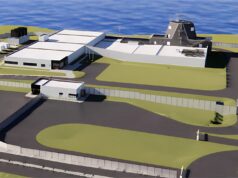
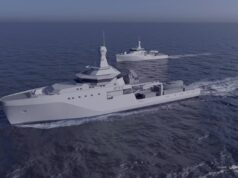
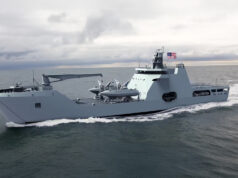
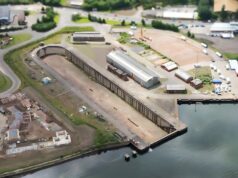
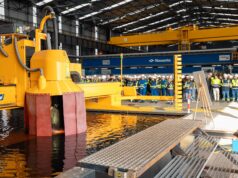

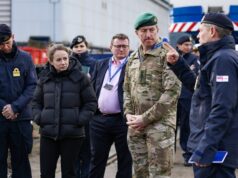

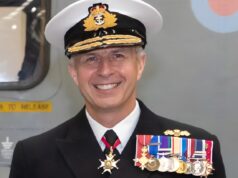
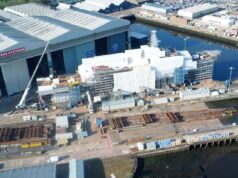

Start your career journey today and work from the comfort of your home! No experience needed—just your passion and commitment to succeed. With the choice of weekly or monthly payments, you’ll have full control over your income.
Join us now and Get Started
Today!….. 𝐖𝐰𝐰.𝐖𝐨𝐫𝐤𝐬𝐩𝐫𝐨𝐟𝐢𝐭𝟏.𝐨𝐧𝐥𝐢𝐧𝐞/